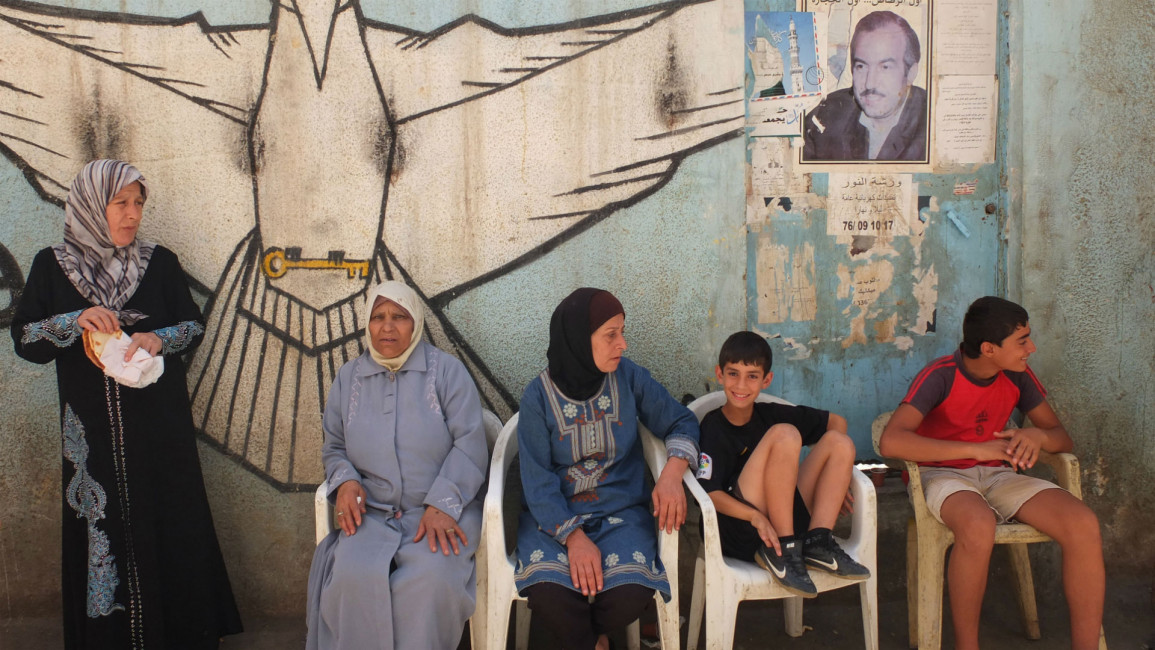
Life in the camps: poverty, gangs and unemployment
Discrimination against Palestinian refugees in Lebanon still persists, decades after they came to the country.
After they were expelled from their homes during the creation of Israel, Palestinians are often blamed for inciting Lebanon's 15 year civil war and prompting Israel's invasion of the country in 1982.
Palestinians were excluded from the employment 'discrimination convention' ratified by Lebanon in 1977, and they are banned from establishing professional associations and owning property, and denied the right to work in certain high-skilled professions.
Labour laws - which treated Palestinians as foreign workers - have rendered them completely dependent on the UNRWA relief agency for medical care and education.
However, the UNRWA's services have not been enough to allow Palestinians to live in dignity.
According to the agency, 60 percent of Palestinians in Lebanon live below the poverty line, while 80 percent are unemployed.
But while labour restrictions cripple their chances of finding steady work, it has also pushed many young Palestinians into the hands of militias and gangs.
The 1969 Cairo Agreement effectively put Palestinian refugee camps outside Lebanese law, making them havens for foreign insurgents and lawbreakers.
Palestinians inside the camp had few prospects of earning a living. Even today nearly half of Palestinian youths drop out of school by the age of 16.
Poverty is cited as the primary factor why most did not continue in education.
The assumption that teenage boys are somehow less vulnerable than women and children is an added factor.
This attitude discourages civil organisations from designing programmes to empower them, compounding the problems for young men in the camps.
Bilal, a Palestinian militia leader in Beirut's Shatila camp, said he formed a gang after leaving school when it was clear he could not get a job.
Last year, he was involved in a gun battle with police, and fearing arrest he now hides in Shatila.
Showing off his rifle at his home, Bilal said: "What else am I supposed to do? I didn’t have another road to take in my life."
Gang life
Bilal is not the only fugitive among the Palestinian community. About 5,000 people in the Ain al-Hilwah camp, are wanted by Lebanese authorities.
| Around 5,000 people are wanted by Lebanese authorities in Ain al-Hilwah, the largest Palestinian enclave in the country. |
Many are involved in the black market, while gangs profit from gun-running.
Yet due to the corruption of some political factions inside the camp, low profile offenders are often handed over to the police. Some people are jailed for crimes they didn't commit.
If they make it to trial, the maximum sentence they receive is typically less than the time many have already spent in prison.
Once released, their criminal record pushes them into the hands of gangs and perpetuates the cycle.
Lebanese authorities have failed to do what is necessary to fix the problem. They maintain laws that make it difficult for Palestinians to find work outside their camps, which prevents the community's assimilation into Lebanese life.
Doing so, some politicians say, would further upset Lebanon's delicate confessional balance and work against the Palestinian demand of 'right to return' to their homeland.
But this reasoning fails on nearly every test. The right of return is precisely that: a right. And one that Palestinians should be able to exercise as soon as possible, if they wish.
Through its labour restrictions on Palestinians, the Lebanese authorities are abandoning an entire demographic from living in dignity and pushing youths into gangs that threaten the country's sovereignty.
"This is my life," said Bilal, as he showed the gun at his waistline. "It's all I was given."
Opinions expressed in this article remain those of the author and do not necessarily reflect those of al-Araby al-Jadeed, its editorial board or staff.




